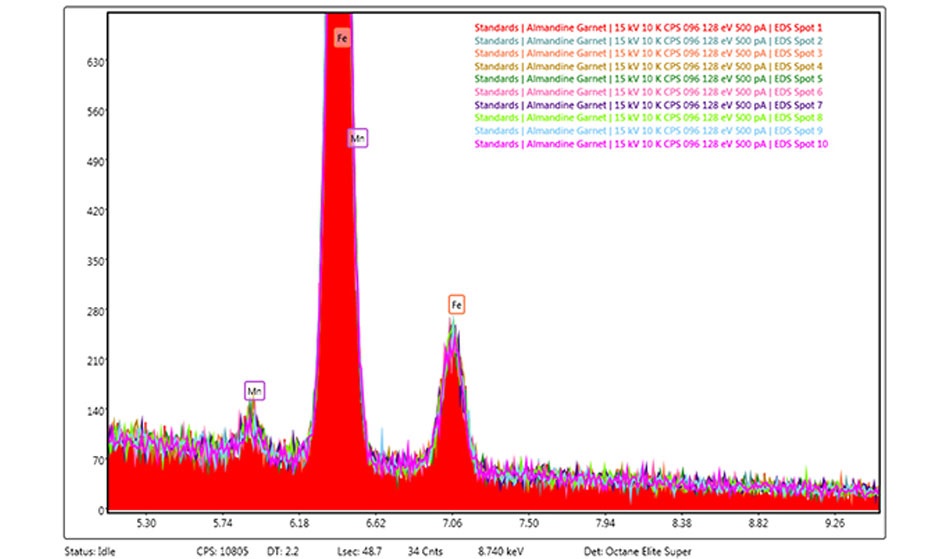Summary
There are often questions about how to a set up an EDS collection to achieve the “best” data, but the best data is usually dependent both on the analytical goals and the characteristics of the sample. Often, there is no single correct answer. The analyst needs to consider a variety of factors when setting up an analysis to achieve the optimal results. For example, it’s hard to recommend a collection time for a typical EDS analysis because a quick collection time of 5-10 seconds is only realistic on a sample with major and minor elements, but a longer collection time would be more appropriate for samples with trace elements or low count rates. And while a sample with a trace amount of an element may need 100 seconds or longer collection time to achieve minimum detection limits, this does not necessarily improve the quantification accuracy of major elements.

In this webinar, we will explore the relationship between collection time, count rate and resolution, and how it affects the data accuracy and error interval. Experimental data will also show the influence of geometry settings, sample surface quality, background adjustments, and peak overlaps and the quantification results.
Speakers
Tara Nylese is the EDAX Global Applications Manager, based in the Mahwah office. Tara works with EDS, EBSD and WDS technologies. She started her career in microanalysis primarily with SEM/EDS based techniques and over the course of her 17 years with EDAX has added the additional capabilities into her analytical approaches. With a strong understanding of core technologies, Tara takes the advanced technologies in novel directions, externally with customers and internally within various EDAX groups. Her main emphasis is on finding ways to increase the integration between techniques to create solutions that are beyond the limit of each individual technique. Of particular interest are applications of phase mapping and how to fully characterize materials with subtle differences, to create a high level of materials characterization.
Tara holds a Master’s degree in Chemistry with a Professional Science Masters (PSM), which gives her an understanding of the commercial end of applied science and technology. With a foundation in chemistry, she is able to adapt to many different applications, from excitation techniques to diffraction techniques and in industry from biological to materials science to geology.
Jens Rafaelsen joined EDAX in 2014 as an Applications Engineer specializing in EDS. He has a strong background in electron microscopy and has trained numerous students and clients in SEM and EDS theory and practice. His experience includes several years as the technical supervisor of the clean room facilities at Aalborg University, Denmark, where he applied a variety of techniques including SEM, FIB, CVD, PVD, PES, AFM, laser spectroscopy, and optical, electron, and ion beam lithography.
Jens earned his PhD in Physics from Aalborg University. His research focused on Germanium surfaces and nanostructures probed by non-linear optical measurement techniques, photoemission spectroscopy, and electron microscopy.
As an Applications Engineer, Jens enjoys the versatility the position has to offer, ranging from training first time users and running reference samples to discussing applications with experts in the field and developing new techniques to solve complex problems. He is highly interested in novel applications, expanding the areas in which EDS is traditionally used, and ensuring users and clients receive the training and information they need to solve their daily tasks and make the most of their equipment.